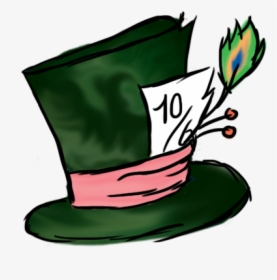I’m currently trying to get better at reading and am doing that by accumulating a library of public domain books, since they’re free and easily available.
-
If you have a specific work you love that was published pre-1928, or is currently not under copyright, feel free to comment it down below.
-
if you have any authors you think are worth reading, also post them below.
I’m currently reading Jack London’s "War of the Classes", and I have “Carmilla” by Joseph Sheridan Le Fanu, and “The Picture of Dorian Gray” by Oscar Wilde downloaded for later.
I’m going to make a couple of recommendations, but I do have a question - why are you looking for free/out of copyright books? These have a couple of issues that may get in the way of your primary goal of getting g better at reading and, I assume, learning about new subjects. I’m also going to make the assumption that we’re talking primarily about English language books, but note that you didn’t specify a set of topics.
Many of the books that you can find on, eg, Gutenberg, suffer from being poor or outdated translations. If you’re really looking to understand Marx’s Capital (to take an extreme example) I could not recommend a resource less than Gutenberg. It is atrocious. If you want to read Dickens or something, it is at best plain unflavored oatmeal. I’d like to suggest a couple of alternatives.
When I had zero income for a while and was simply burning through my savings to live from day to day but still needed to read and learn - both to feel human and to move on to my next phase in life - I found torrents of ebooks. Some of them were just crappy PDF scans where the pages were just images (I think my first Zizek book was like that), while others were available in or translatable to an e-book format. The ones I tended to grab (and this is 20+ years ago) were things like the entire collection of Oxford University Press books for a span of years, which would cover science, philosophy, literature, and so on. Each one was gigs in size, and I used an ebook program to catalog them.
The other option, depending on where you are or where you can manage to appear to be, is the public library system. This lets you borrow many books, and libraries aren’t all that strict (generally speaking) about validating addresses and such.
My suggestion overall is to read about reading, and in general to read more modern books. If you’re interested in Jack London, don’t just read Jack London. Read about how he fits into English literature by people who have dedicated their lives to the subject. Read about the world he inhabited, what his metaphors mean, and how he compares to writers in his genre who preceded and followed him.
Oscar Wilde is a darling author, but again you need the full literary context to really appreciate gay history and literature, you’ll want the additional history and context of his contemporaries, his historical conditions, and how his work influenced future authors.
While it’s easier to appreciate Sherlock Holmes than Shakespeare, you won’t get as much out of it out of either without a bit more digging.
Alot of good advice.
I am choosing books that are free to acquire because it means finding them and downloading them is usually very straightforward, compared to trying to illegally torrent a book or hunt it down via shady links and the like. I deal with ADD and have a history of having great difficulty reading things, so I am avoiding sinking costs into the hobby until I am actually able and invested in it3
I have to agree - I previously tried to read project Gutenberg’s copy of 1984 and it was rife with his-spellings and typos and had no useful punctuation. I have found much better luck when exploring Wikisource.org. It seems that its texts are much better formatted, and the EPUBs I’ve downloaded from there, while plain, read well.
I an hesitant to read just any copy of Capital since it strikes me as very dense. I have heard there is a very faithful translation due to release this year and I might purchase that when I feel ready.
I do also have a library card at my disposal.
dude, you dont need to torrent. Anna’s Archive has soooo many books. I prefer epub and they usually have what I am looking for. Its super simple. just search for the book and format, then follow the download links.
Just to get it out of the way, I picked Capital because it’s extremely popular as well as being legendarily difficult to read. You could probably do Origin of Species pretty easily - I think it’s actually pretty accessible - but there’s no reason to read it at this point unless you’re a biology nerd with a fetish for history. Evolutionary biology, fortunately, has advanced significantly in the past couple of centuries. If you actually are interested in Capital (both as an artifact of its time as well as being a brilliant critique of the system that was starting to hit its stride), I recommend David Harvey. Harvey has several video and text based courses on Capital that make the ideas accessible and make sense both in the context in which they were written and for our more modern understanding. A lot of his work is freely available on YouTube and the web. 
But moving on from Marx, you might benefit from a course in literary analysis. Again, it could be an ebook or a video, but it might help to develop a framework for understanding literature around either a specific period (eg early 20th century versus post war writings) or topics or literary movements. What I’m saying is that if you read scholars who studied Walt Whitman in addition to actually reading his writings, I think you would get closer to what I think your goal is.
In any case, I wish you all the luck in the world and hope you make some remarkable discoveries. I’ve taken multi-year sabbaticals where I did little outside of reading, and I always came out of them with far better growth than a decade of work at a desk.
I think all my suggestions are elsewhere in the thread, but I do want to point you to a couple sources for public domain books that are more readable than a lot of other sites.
https://standardebooks.org/ - Mostly cleans up and formats Project Gutenberg sources to make them more readable. Fixes typos, fixed formatting, properly uses ebook features. Very handy.
https://www.globalgreyebooks.com/index.html - Similarly cleans up and formats public domain sources to make them more readable, but has a lot of more obscure stuff. Especially good for weird bits of philosophy, theology, and esoteric stuff, but also just another good source to check if standard doesn’t have what you’re looking for.
I think someone else mentioned Anna’s Archive, but that one’s more than just public domain books. I’ve only used it a couple of times when I wanted to buy an ebook but the author/publisher set it to a price I wasn’t okay with.
Standard Ebooks is a wonderful resource, although they do sometimes go for more modern words or spelling. It’s to help modern readers better understand old texts, but it means you won’t get some of the cool and quaint wording and formatting.
I really enjoyed reading Around The World in 80 Days, or whatever it’s called.
I see you’ve already found Jack London. I remember enjoying White Fang a lot as a kid, though it’s been a while since I read it so I’m not 100% certain how well it holds up.
I remember reading “Call of the Wild” and “To Build a Fire” a long time ago and those both have stuck with me. It was only when looking him up again that I discovered he’d written all 3.
Anything else of his you’d specifically recommend?
I love Alice in wonderland, and heavily recommend the sequel, through the looking glass, which is also fantastic.
Two of my favorites
The count of Monte Cristo is also absolutely amazing.
Almost every Sherlock Holmes story.
HG Wells has something like 200 stories? They’re all great.
I am a big fan of Leo Tolstoy. His biggest works are War and Peace and Anna Karenina, but those are both quite large, so if you want to know a bit about his style i would suggest some of his shorter works. Of the shorter works I have read I really loved “The Death Of Ivan Ilyich”, “Hadji Murad” and “Master And Man”.
I also really like Jane Austen, you can’t really go wrong with her. Her novels aren’t that difficult either; they were the first novels in English (my second language) that I really enjoyed reading and they significantly improved my English.
This one is under a Creative Commons non commercial license and available for free. Plus it’s one of my top 10 books of all time: https://en.wikipedia.org/wiki/Down_and_Out_in_the_Magic_Kingdom
I remember reading “Little Brother” In high school. It’s very cool of Cory Doctorow to let people read his work for free on his website.
Thank you for recommending this. I’ll have to check it out.
I read the classics a lot when I was younger.These are ones I’ve read and enjoyed:
Anna Karenina, The Great Gatsby, Twelve Years a Slave, Frankenstein, Moby Dick, Little Women, The Importance of Being Earnest, A Tale Of Two Cities, Metamorphosis, Crime and Punishment, War and Peace, Dracula, Thus Spake Zarathustra,Beyond Good and Evil, Little Women, Don Quixote, Meditations, Gulliver’s Travels, War of the Worlds
There are plenty more lists out there of good public domain books, but many are not my cup of tea.
Little Fuzzy by H. Beam Piper is a delight to read!
https://www.gutenberg.org/ebooks/18137
If you like it though, the next two are not public domain.
You’ll probably know Flatland.
Absolutely, actually during my geometry class we read it.
Absolutely a pivotal work with a very interesting fiction within, but goddamn is it a dry read. It’s a blessing it’s so short.
The Road by Jack London, Twenty Thousand Leagues Under the Seas by Jules Verne. In fact, I have a load of DRM-free ebooks I can just give you if you want.
The Phantom of the Opera by Gaston Leroux is a fun read.
For the public domain, I think Les Misérables by Victor Hugo is a great read.
However I must ask, why limit yourself purely to the public domain? Do you not have access to a library? They are incredible places. And there are also some great apps available like Libby where you can checkout ebooks and audio books from anywhere with internet.
It’s not so much that I’m limiting myself to public works - I do have a library card and look around for various books that interest me. I’m just choosing to focus on them more currently.
I will have to check out Libby, it sounds very useful.




